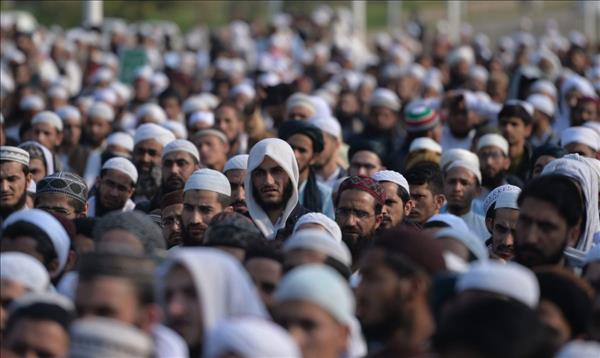(MENAFN- Asia Times) The state of education in Pakistan is a cause for concern. Some institutes inside this system are fostering a culture of immorality and rogue behavior among their students. The emphasis is placed on academic achievement, where students are taught how to excel in academics and attain high grades but are not instructed on how to adopt moral values and become good human beings.
Recently, a disturbing incident took place at scarsdale international school in Lahore, where four sisters brutally attacked a fellow student, Aliha Imran.
The reason was that Aliha had been asked by the father of another girl in her class named Jannat about the reasons for her repeated failures, and Aliha told him about her drug use within the school premises. When this news reached Jannat, she told her sisters' gang, who beat Aliha, injuring her seriously.
Rather than intervening to aid the victim, the onlookers at the spot where the girl was beaten filmed the attack and laughed at her. This type of behavior is indicative of a society that is steeped in ignorance and moral degeneracy.
This is a sad reflection of the state of society in Pakistan. While other educational institutions in the country work toward the moral development of the students, incidents like that experienced at Scarsdale International School may exhibit a culture of violence.
It is important to note that education alone cannot guarantee a person's morality, nor can education be the standard of an individual's eminence, as many uneducated and illiterate individuals possess great moral character and integrity.
Moral guidance
Therefore, one's level of education should not be viewed as a measure of one's worth. The actual purpose of education is to promote self-awareness and morals.
It is worth noticing that mere practical education can lead to a lack of moral guidance, disregard for values like honesty, empathy and justice, a lack of critical thinking skills, and a negative impact on society as a whole.
It may be the case that some educational institutions around the world do not focus on moral development, although many philosophers and educators put an emphasis on moral education too. The late Nel Noddings, an American philosopher and educator, argued in her 1984 work Caring: A Feminine Approach to Ethics & Moral Education,“The central goal of education is to foster the growth of the moral self.”
A similar approach can be seen in the works of the famous Swiss psychologist and linguist Jean Piaget, who stated in his 1950 book The Psychology of Intelligence,“The main purpose of education is to teach a child to think intensively and to think critically. Intelligence plus character – that is the goal of true education.”
Many other educationists like Paul Freire, Richard Lavoie, William Glasser and Rudolf Steiner are also of the view that morals and critical thinking should be the priorities of a child's education.
But unfortunately, some Pakistani educational institutions prioritize academic achievement over personal development and moral education, which leads toward the rise of a nation with low moral values.
Furthermore, the incident at Scarsdale International School highlights another major problem in Pakistani society: the lack of accountability for the wealthy and powerful.
The attackers in this case, who are said to be from a politician's family, were granted pre-arrest bail despite their heinous actions, and have yet to face any real consequences for their actions. This sort of thing perpetuates a culture of impunity and reinforces the belief that the laws and justice system in Pakistan favor the wealthy and powerful, while the poor are left to suffer under a flawed and corrupt system.
From an Islamic perspective, this type of societal inequality is a major contributor to the downfall of nations. As the Prophet Muhammad (peace be upon him) said,“The nations prior to you were destroyed because if a noble amongst them stole, they used to excuse him, and if a poor person amongst them stole, they would apply legal punishment to him.” (Sahih al-Bukhari, Hadith No 4304)
This statement holds true for Pakistan today, where the wealthy and powerful are often treated preferentially and escape accountability for their actions.
The lack of moral schooling is not only limited to the educational institutions in the country. Pakistan is currently under the control of individuals who were brought up with privilege and have been heavily influenced by a Western, elite lifestyle. Most of the power-bearers gain their positions through popularity or influence rather than their character and morals .
The ramifications of these persistent occurrences could cast a dark shadow over the future of education in Pakistan, eventually leading to the downfall of the nation. The nation's youth must take a proactive approach and work toward a society that is equitable and just for everyone.
As the future leaders of Pakistan, it is up to such individuals who possess the courage and conviction to bring about positive change and elevate their country to the level where justice prevails over everything.


















Comments
No comment